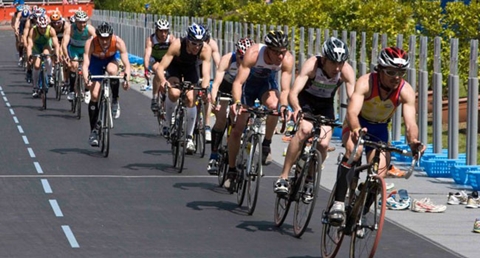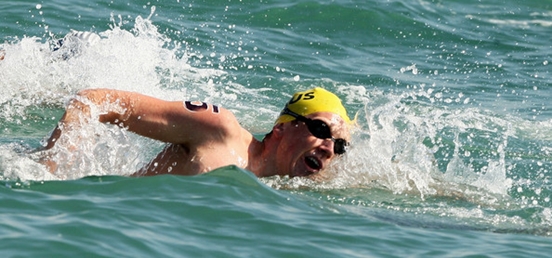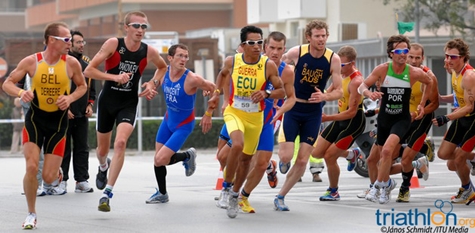How Caffeine Impacts Athletic Performance
The purpose of this article is to provide the information on (i) what is caffeine, (ii) what are the physiologic effects of caffeine (iii) how caffeine impacts athletic performance and (iv) under what circumstances and during what type of athletic events is caffeine recommended or should be avoided.
What is Caffeine?
Caffeine is found in varying quantities in the beans, leaves, and fruit of some plants including the coffee plant, tea bush and kola nut. Caffeine is a physcoactive stimulant drug which primarily acts upon the central nervous system that can induce temporarily mental and physical performance, including enhanced locomotion and alertness.
Caffeine is the world's most widely consumed physcoactive drug and is found in coffee, non herbal tea, manyt soft drinks and energy drinks, and is some exercise gels.
Physiologic Impacts of Caffeine
Caffeine Inhibits Reabsorbtion of Sodium.
Caffeine Increases Heart Rate and Blood Pressure.
Caffeine can cause Abdominal Cramps and Diarrhea.
Caffeine is a Diuretic. Caffeine is also a diuretic which means it can make you urinate more than usual.
Caffeine Dehydrates. Caffeine dehydrates the body. See Hydration for Endurance Athletes. There are some studies which indicate that caffeine does not cause dehydration and perhaps doesn't in some people. A good personal test is if caffeine causes your mouth to feel dry, then it is dehydrating you.
Due to Caffeine's dehydrating and heart rate increasing effects, Caffeine can increase the risk of cardiac arrest during distance training and events, especially in hot weather. As the life you save may be your training buddy, knowing basic CPR is an important life skill! See Cardiopulmonary Resuscitation (CPR) is a Life Skill: Learn How to do it!
Caffeine Metabolism and Half-Life
Caffeine from coffee or other beverages is absorbed by the stomach and small intestine within 45 minutes of ingestion and then distributed throughout all tissues of the body.
The half-life of caffeine — the time required for the body to eliminate one-half of the total amount of caffeine — varies widely among individuals, but on average, in healthy adults, caffeine's half-life is approximately 4.9 hours.
Caffeine readily crosses the blood-brain barrier that separates the bloodstream from the interior of the brain. Once in the brain, the principal mode of action is as an antagoinist of andenosine receptors. The caffeine molecule is structurally similar to andenosine , and binds to adenosine receptors on the surface of cells.. Therefore, caffeine acts as a competitive inhibitor. Adenosine is found in every part of the body, because it plays a role in the fundamental ATP-related energy metabolism.
How Caffeine Impacts Athletic Performance
High levels of caffeine use, such as 800 mg per day, have been banned by the International Olympic Committee and other institutions. Some athletes have come close to flunking the drug test after ingesting only 350mg.
Caffeine can cover up the fact that your body needs more rest. Rest is essential to peak athletic performance. See Natural Recovery Tips for Endurance Athletes for Peak Performance and Injury Prevention
Caffeine effects each person differently. Some people feel like they have more energy and can exercise harder and longer if they have caffeine first. Caffeine makes other people feel too jittery or nervous to do well during sports activities. It may not be good for you to take caffeine if you are nervous or get pre-event jitters. Caffeine can make you more nervous, cause muscle shakiness, and make it hard to concentrate.
Studies have shown that caffeine helped muscles use fat as a fuel, sparing the glycogen stored in muscles and increasing endurance. But there were several hints that something else was going on. For example, caffeine improved performance even in short intense bursts of exercise when endurance is not an issue. Some researchers report that caffeine increases the power output of muscles by releasing calcium that is stored in muscle.
Athletes may also experience abdominal cramps and diarrhea related to the large intestine contractions caused by caffeine. The combination of dehydration and cramping can have particularly detrimental effects on performance.
Don't over use caffeine prior to and during a race. Terry Graham, chairman of the Department of Human Health and Nutritional Sciences of the University of Guelph in Canada, found that at 9 milligrams per kilogram, athletes actually did worse.
Caffeine Quantity in Sports Drinks and Sports Supplements
How do I know how much caffeine is right for me? Ask your caregiver before using caffeine to improve your ability to do sports. If you do not usually drink coffee or other things with caffeine, Try 50 to 100 mg of caffeine at first. The highest amount that most people can tolerate before hard exercise is 350 mg. Another way to figure the best amount of caffeine for you is to take it according to how much you weigh. Take 2 to 4 mg of caffeine for each kilogram (kg) of your body weight. Divide your weight in pounds by 2.2 to figure out how much you weigh in kilograms. For example, a 154 pound athlete weighs 70 kilograms and could take 140 to 320 mg of caffeine.
Caffeine is readily available in a variety of products:
- -Gu, Vanilla, 1 oz: 20 mg
- -Diet Coke, 12 oz: 30 mg
- -Espresso, 5 oz shot: 150 mg
- -Brewed Coffee, 8 oz: 150 mg
- -Jolt gum, 1 piece: 40 mg
- -Pepsi, 12 oz can: 45 mg
- -Dexatrim diet pill: 52 mg
- -Excedrine, 1 tab: 5 mg
- -NoDoz max, 1 tab: 200 mg
- -Starbucks, 16 oz: 200 mg
- -Red Bull, 8 oz can: 80 mg
- -Chocolate milk, 8 oz glass: 10 mg
- -Semi-sweet chocolate, 1 oz: 20 mg
- -Black tea brewed 3 minutes, 6 oz: 50 mg
Developing a Caffeine Strategy for Peak Athletic Performance
Many athletes and coaches are not caffeine fans. There are many studies which show caffeine enhances athletic performance. On the flip site, researchers in Switzerland advise athletes to refrain from consuming caffeine prior to races, as they have found caffeine limits the body's ability to increase blood flow to the heart, which is needed to deliver increased oxygen needs during exercise.
Despite some known benefits of caffeine in some exercise, individual results may vary greatly. Differences in metabolism, diet, and frequency of caffeine use are some of the factors that can determine how an individual will react to caffeine. Additionally, some athletes may actually experience a decrease in performance, usually due to side effects of caffeine.
Sprints. Research has shown that pre-exercise caffeine enhances performance in sprints, short distances events, and in all-out efforts lasting four to five minutes.
Endurance Events and Ironman Triathlons. Because longer races like Marathons and Ironman Triathlons have a greater baseline risk of dehydration, nausea and abdominal cramps, it is very important to consider the side effects of caffeine use during these distance events. As there inevitably is a down associated with the initial up provided by caffeine, endurance athletes will want to become familiar with how caffeine affects them during competition to lessen the risk of bonking during the later stages of a race.
Due to Caffeine's dehydrating and heart rate increasing effects, Caffeine can increase the risk of cardiac arrest during distance training and events, especially in hot weather. As the life you save may be your training buddy, knowing basic CPR is an important life skill! See Cardiopulmonary Resuscitation (CPR) is a Life Skill: Learn How to do it!
No Caffeine One Week Prior to Race. Caffeine only aids the performance of athletes who do not habitually use caffeine. So if you are a regular coffee drinker and want to benefit from a caffeine boost, you need to cut out the caffeine for two weeks before a big race.
Moderate Dose. Have a moderate dose between 1-2 hours prior to your race prior to short course races.
Familiarity. Make sure that you have used caffeine under a variety of training conditions and are thoroughly familiar with how your body reacts to this drug. Never try anything new on race day.
Weather Conditions. If weather conditions exist which can cause severe dehydration, such as very windy, humid, hot or cold, use of caffeine because of its dehydrating effects should be very limited, particularly for endurance events.
Recovery. Caffeinated drinks or supplements are not recommended when rapid rehydration after exercise is desired because caffeine can promote modest diuresis in some individuals.
More about Ralph Teller. See Ralph's 1Vigor Log Calendar.






